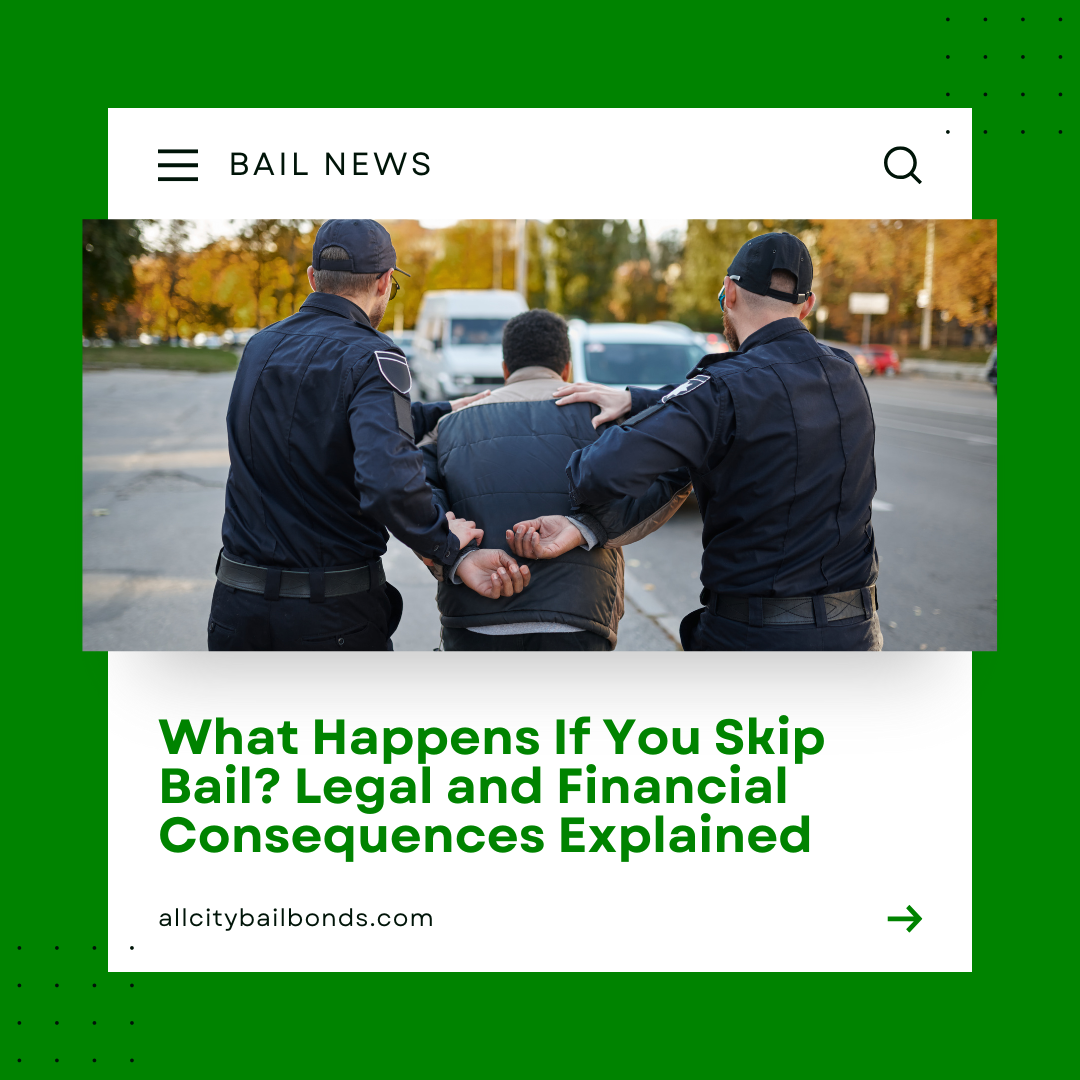
Skipping bail is a decision that can have far-reaching legal, financial, and personal consequences. Whether due to fear, misunderstanding, or intentional avoidance, failing to appear in court disrupts the judicial process and puts additional burdens on everyone involved. Here’s an in-depth look at what happens when someone skips bail and why it’s crucial to meet all court obligations.
1. The Legal Fallout
When you fail to appear in court, the judge typically issues a bench warrant for your arrest. This warrant allows law enforcement to detain you at any time. If you’re arrested on this warrant, the penalties are often harsher than the original charges, including potential jail time, higher fines, and a tarnished record that may affect future dealings with the court system.
Skipping bail can also result in being charged with bail jumping, a separate criminal offense in many jurisdictions. This charge varies in severity but is generally treated as a misdemeanor or felony, depending on the underlying case.
2. The Financial Consequences
Forfeiting the bail money is perhaps the most immediate financial consequence. Whether it’s cash bail or a bond secured through a bail bondsman, skipping bail usually means losing that money.
If you worked with a bail bondsman, they may pursue reimbursement through collections or other legal means. Additionally, co-signers of your bail bond—often family or friends—may be held financially responsible. This strain can lead to fractured relationships and lasting financial burdens.
3. Impact on Co-Signers
Co-signers are legally obligated to ensure the defendant appears in court. If the defendant skips bail, co-signers may face lawsuits from the bondsman to recover the full bail amount. In some cases, the bondsman may seize collateral such as property or vehicles, further amplifying the fallout.
4. Involvement of Bounty Hunters
If a bondsman is involved, they may hire a bounty hunter to locate and return you to custody. Bounty hunters have legal authority to track, detain, and transport individuals who have skipped bail. This can be an invasive and stressful experience.
5. How to Navigate This Situation
If you’ve missed a court date, take immediate action. Contact your attorney and the court to explain the circumstances. In some cases, judges may show leniency if you missed court due to legitimate reasons, such as medical emergencies or scheduling errors.
Final Thoughts
Skipping bail is a costly and risky decision. By understanding the consequences and working proactively with your attorney and bail bondsman, you can minimize the fallout and get your case back on track.
Do you need help with your bail situation? Or that of a friend or loved one? Give us a call anytime, 365 days a year, 24 hours a day to understand your options with our free bail consultation! 1-800-622-9991
